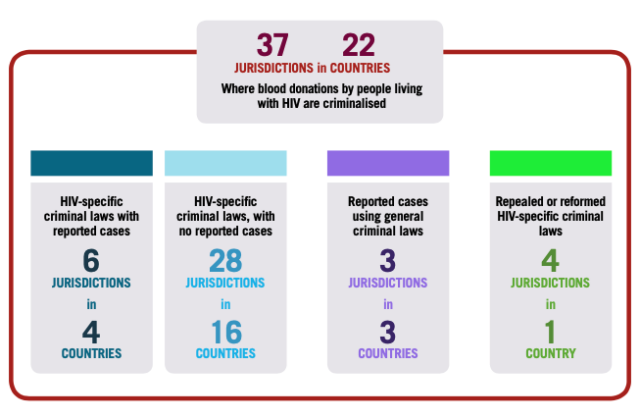New international principles provide guidance on many aspects of overcriminalisation, including HIV criminalisation
This week saw the long-awaited publication of the 8 March Principles for a Human Rights-Based Approach to Criminal Law Proscribing Conduct Associated with Sex, Reproduction, Drug Use, HIV, Homelessness and Poverty by the International Commission of Jurists (ICJ).
The 21 principles aim to address the detrimental impact of overcriminalisation of a wide range of conduct – including HIV criminalisation – on health, equality, and other human rights, and seek to offer guidance on the application of criminal law in a way that upholds human rights.
The principles offer a clear, accessible, and operational legal framework and practical legal guidance on the application of criminal law to:
- sexual and reproductive health and rights, including abortion;
- consensual sexual activities, including in such contexts as sex outside marriage, same-sex sexual relations, adolescent sexual activity, and sex work;
- gender identity and gender expression;
- HIV non-disclosure, exposure, or transmission;
- drug use and the possession of drugs for personal use;
- and homelessness and poverty.
The principles were launched on Wednesday, March 8 – International Women’s Day – at a side-event at the 52nd Session of the UN Human Rights Council in Geneva. UNAIDS Deputy Executive Director, Christine Stegling, welcomed the fact that these principles were named after, and were being launched on, International Women’s Day, “in recognition of the detrimental effects criminal law can, and too often does have on women in all their diversity.”
Volker Türk, High Commissioner for Human Rights, also noted the significance of the name and the launch on International Women’s Day: “Today is an opportunity for all of us to think about power and male dominated systems,” he said.
What do the principles cover?
The first six principles cover legality, harm, individual criminal liability, voluntary act requirement, mental state requirement, and grounds for excluding criminal liability.
The next seven principles cover the following areas: criminal law and international human rights law and standards; human rights restrictions on criminal law; legitimate exercise of human rights; criminal law and prohibited discrimination; criminal liability may not be based on discriminatory grounds; limitations on criminal liability for persons under 18 years of age; criminal law and non-derogable human rights; and criminal law sanctions.
The final eight principles cover specific areas: sexual and reproductive health and rights; abortion; consensual sexual conduct; sex work; sexual orientation, gender identity and gender expression; HIV non-disclosure, exposure, or transmission; drug use and possession, purchase, or cultivation of drugs for personal use; life-sustaining activities in public places and conduct associated with homelessness and poverty.
How were the principles developed?
The idea for the principles came out of a 2018 meeting convened by the ICJ with UNAIDS and the Office of the High Commissioner for Human Rights (OHCHR). This convening endorsed the call by civil society and other stakeholders for the elaboration of a set of jurists’ principles to assist legislatures, the courts, administrative and prosecutorial authorities, and advocates to address the detrimental human rights impact of criminalisation in the above-mentioned areas.
Following this initial expert meeting, the ICJ engaged in a lengthy consultative process. For example, the HIV JUSTICE WORLDWIDE coalition submitted this response in 2019. Ultimately, a wide range of expert jurists, academics, legal practitioners, human rights defenders, and civil society organisations across the world reviewed and eventually endorsed or supported the principles.
Jurists who have endorsed the principles so far include: HJN Global Advisory Panel (GAP) member, Zione Ntaba, Justice of the High Court Malawi; former HJN GAP member Edwin Cameron, Retired Justice, Constitutional Court of South Africa and Inspecting Judge, Judicial Inspectorate for Correctional Services; and the Chair of HJN’s Supervisory Board, Richard Elliott.
The HIV Justice Network was one of several organisations and institutions to be the first to support the principles alongside Amnesty International, CREA, the Global Network of Sex Work Projects, and the International Network of People who Use Drugs.
You can find the principles on the ICJ website as well as in the English language version of the HIV Justice Academy’s Resource Library.



